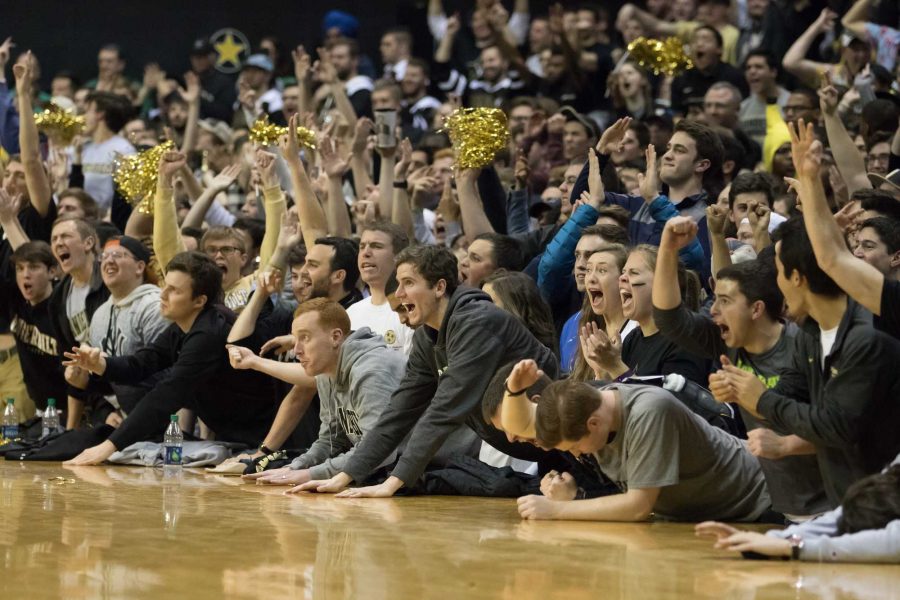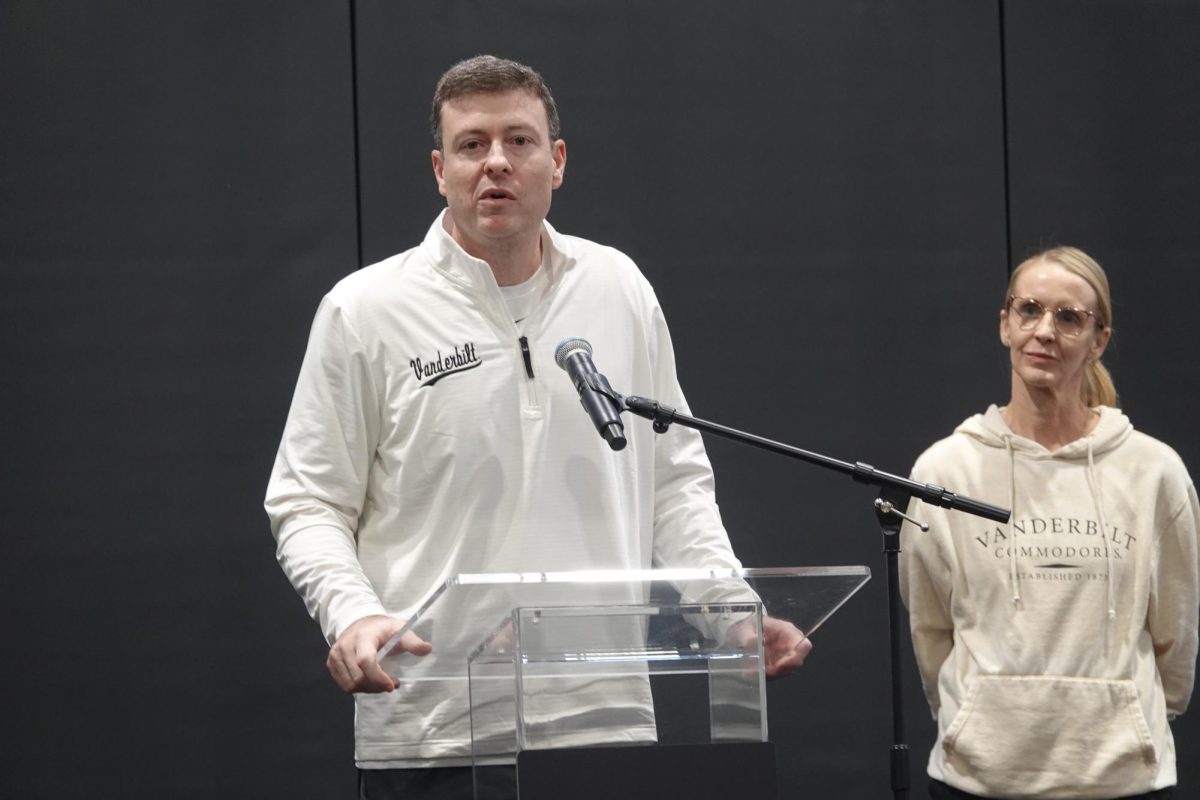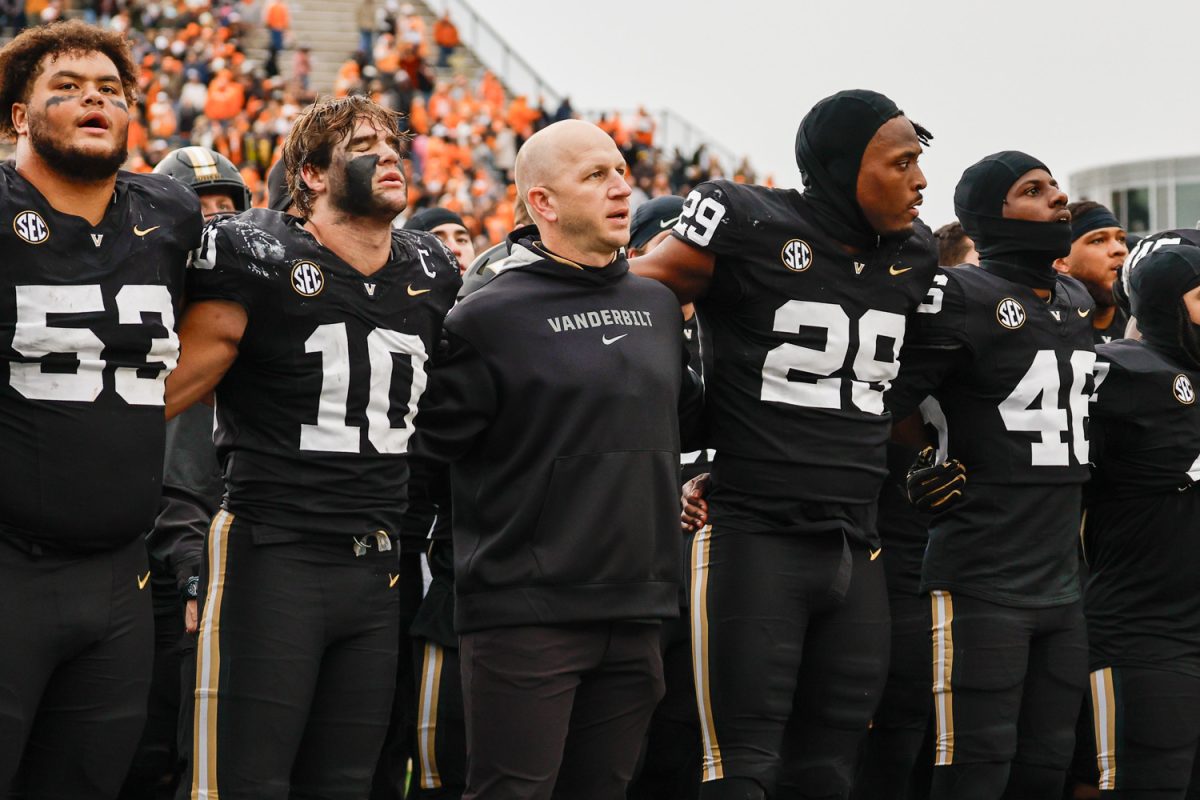In February, while serving in an interim capacity, Vice Chancellor for Athletics and University Affairs and Athletic Director, Candice Storey Lee (B.S ‘00) and then-interim Chancellor Susan Wente released the long-awaited Vanderbilt Strategic Plan for Athletics.
The plan was highly scrutinized by a number of different athletic stakeholder groups. Its lack of concrete initiatives, extensive fundraising plans or mention of specified facility upgrades frustrated Vanderbilt fans who labeled the plan as false advertising. But in just six months’ time, Vanderbilt stakeholders are beginning to reap the rewards of its meticulously crafted ideals.
In the plan’s “Guiding Framework,” Vanderbilt states five strategic focus areas in which the program as a whole needs to improve. Those include “Academic and Personal Development,” “Athletic Excellence,” “Stakeholder Engagement,” “Fan Experience” and “Financial Performance.” And in August, Vanderbilt began chipping away at these focus areas by launching two crucial engagement initiatives that address both Stakeholder Engagement and Fan Experience.
The two initiatives, the Black and Gold Club and the Commodore Fan Council, are designed to welcome new stakeholders while inviting apathetic fans and former neglected student-athletes back into the Vanderbilt community. They indicate the school’s commitment to its athletics strategic plan and are long overdue initiatives that are an extremely positive sign for the future of Vanderbilt athletics.
The Black and Gold Club
Nobody knows better than Lee, a former Vanderbilt student-athlete, that a formalized Vanderbilt student-athlete alumni organization is long overdue.
“It hits me very very deeply because I have teammates who I haven’t seen in years who didn’t feel like we were doing enough to reach out to them,” Lee told The Hustler. “We weren’t doing enough to remind them that this was their home.”
Lee’s perspective as a former student-athlete is already paying off. One of the biggest benefits of her appointment to athletic director is her prior Commodore student-athlete experience. And it is encouraging to see her already use this perspective to inform decision-making.
“I am not sure I would have been as connected [to Vanderbilt] if I didn’t work here because there really were not formal ways to stay engaged,” Lee explained. “This is not an area where we have excelled. For me and for all of us, we understand that that is a big gap.”
The new student-athlete alumni organization will be a broad-reaching initiative, inviting all former athletes, student managers, spirit squad members and training staff to participate, regardless of the status of the sport.
Within the Club resides a board of Commodore greats who are passionate about honoring former student-athletes and fostering fantastic student-athlete experiences in Nashville for years to come. As a board member representing the Vanderbilt football team, Alphonso Harvey (B.S.‘99) is a terrific example of the hundreds of former student-athletes eagerly searching for ways to reconnect with their university.
“Vanderbilt did a lot for me. I am appreciative of what I learned both on the field and in the classroom and I take it personal in the sense that I have a lot of pride in being a former student-athlete,” Harvey told The Hustler. “As a business owner, the easiest person to sell to is somebody you have already sold to, and there is no bigger advocate or adversary of Vanderbilt athletics than former players.”
Not only will this organization serve to re-engage an alumni network that has been largely neglected, but it will also boost the current student-athlete experience, thereby adding another layer to Vanderbilt’s recruiting pitch.
For the first time in Vanderbilt history, current student-athletes will have a platform to easily connect with former student-athletes who shared similar Vanderbilt experiences. Harvey and the Club have already initiated contact with the Vanderbilt football team and are continuously seeking ways to engage the current student-athletes.
“Already we have interacted with the [football] team, from a leadership perspective, trying to figure out how we can drive engagement,” Harvey said. “How can we give our alums deeper access to what is going on? How can we connect, where appropriate, the current student-athlete and the former student-athlete in a situation where they can get knowledge, skills, expertise passed along.”
But the most exciting thing about the Black and Gold Club is the buzz that it has already created. Both Lee and Harvey stressed that during its first official meeting, albeit over Zoom, the energy among the group was infectious. Alumni care about Vanderbilt athletics. And now, they finally have a way to unite and provide input.
“Our first call gave me such energy. It was amazing. It was amazing,” Lee said. “Vanderbilt people take such great pride in just being Vanderbilt people and to be able to connect with folks from other sports, we may have played different sports but we have something really important in common.”
The Commodore Fan Council
Despite her many years on West End, Lee acknowledges that there are many Vanderbilt perspectives that she simply does not have. One of those is the perspective of the Vanderbilt sidewalk fan. And in an effort to round out this perspective, she made the bold decision to turn to Vanderbilt Twitter.
She had no trouble finding passionate—and critical—Vanderbilt fans who she then made an effort to connect with. Through direct messages, cold calling and impromptu Zoom calls with pure strangers, Lee found a way to solicit several fan opinions simply using Twitter.
Before the COVID-19 outbreak, she had the chance to meet one particularly passionate fan in-person. During their coffee chat at the West End Starbucks, this appreciative fan suggested the creation of a more formalized way for Lee and the Athletic Department to solicit fan opinions. And sure enough, the Commodore Fan Council was born just months later.
Lee’s receptiveness to a simple fan suggestion is impressive and bodes well for the potential impact of the Fan Council. For the first time in school history, Vanderbilt fans will have a direct path to the leaders in McGugin Center and most importantly, they will have someone at the helm who is actually listening to how they feel.
“I want to know what people think. If you care about something, and you are willing to share your ideas about it, then I want to hear that,” Lee said.
The Fan Council, still in its formation phase, will be a selective group simply due to numbers, but will rotate membership. The perks of being admitted include quarterly meetings with Lee and other Athletics department staff and the opportunity to offer opinions, viewpoints and suggestions directly to those making the decisions.
Even if one is not admitted to the Fan Council, by applying, fans were given the chance to offer three suggestions on how to improve the Vanderbilt fan experience in the application.
“[Fans] were able to provide, as part of the application, ideas. And I’m like, ‘Hey, I want to see all of those,’ because they will help inform plans,” Lee said. “It is important to know what our fans think is important. It is important to know what they need.”
The response to the Fan Council? Fantastic. Fans were equally as enthusiastic as alumni were in response to the Black and Gold Club and Lee and the athletic department were overwhelmed with applications.
“It was encouraging to me because there are a lot of people that care. What you don’t want is apathy. And we have some pockets of apathy which we have to attack,” Lee said. “But I am so glad that people care enough that they want to invest their time and efforts, and we need to be responsive to that.”
Change takes time. Sure, these initiatives are not groundbreaking and they may not generate victories on Saturdays this fall, but they indicate direction and improvement. By addressing its core constituents and stakeholders, Vanderbilt is rebuilding engagement from the ground up.
Back in February, the university made a written promise to the Vanderbilt community in the form of their strategic plan. By clearly stating focus areas, Lee and the Athletic Department explained exactly the areas in which they need to improve. And, despite the plan’s seemingly fluffy nature, these initiatives are an indication that Vanderbilt intends to actually act on its broad focus areas, and that is a terrific sign of things to come.
Improvement is a give and take. It is the role of the Vanderbilt community to continue holding leadership accountable for promises made in their strategic plan. But when initiatives such as these are launched, praise is in order as well.
Already, Lee is a trailblazer. And there are plenty more trails to blaze.






